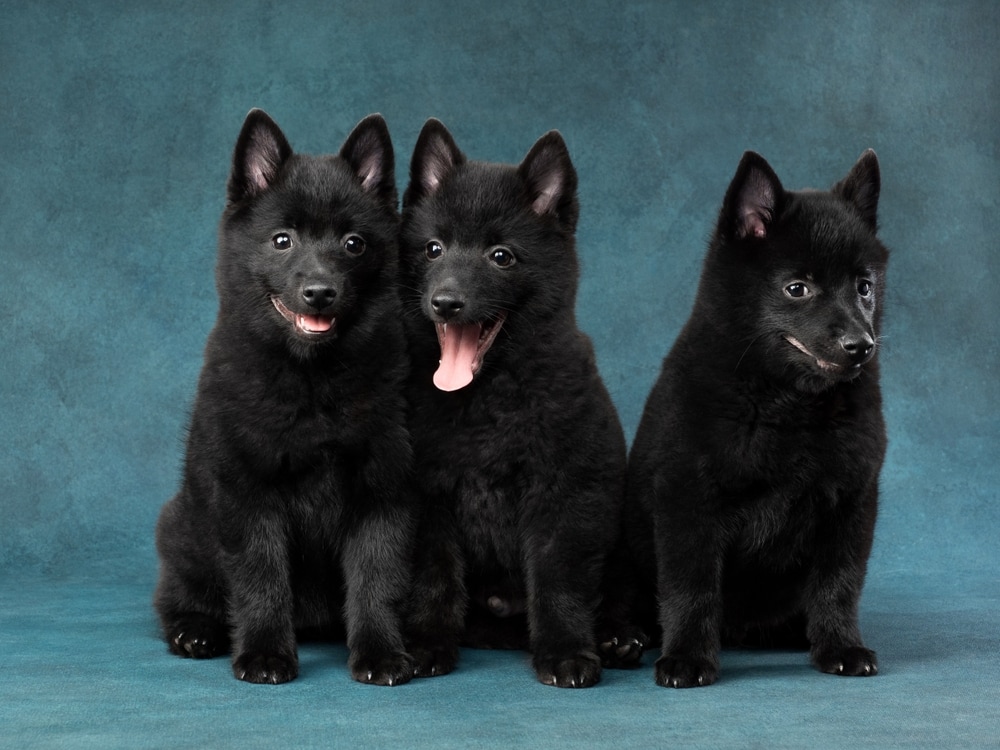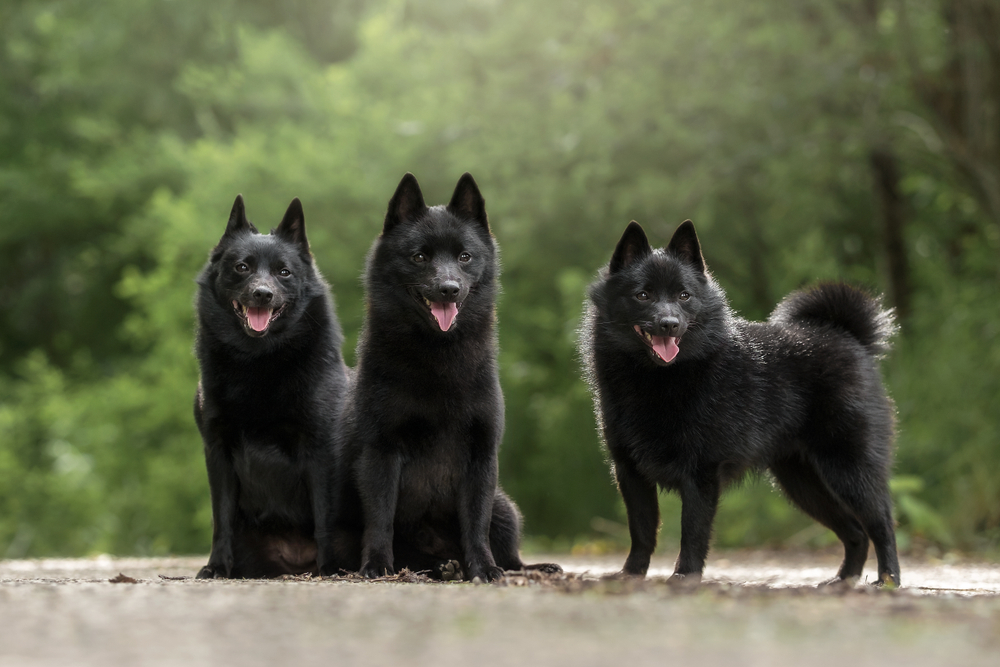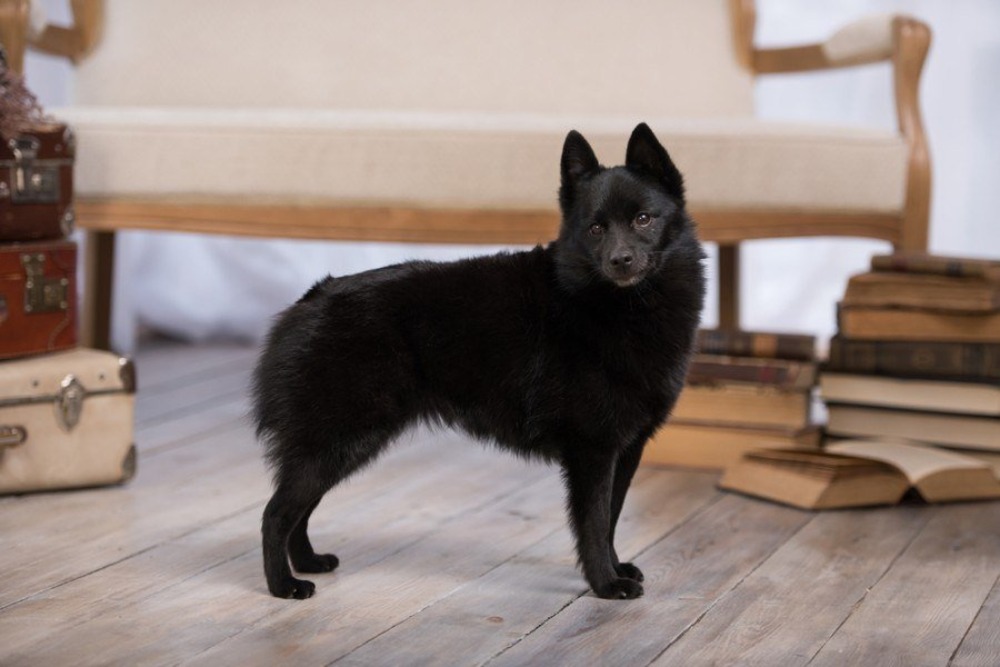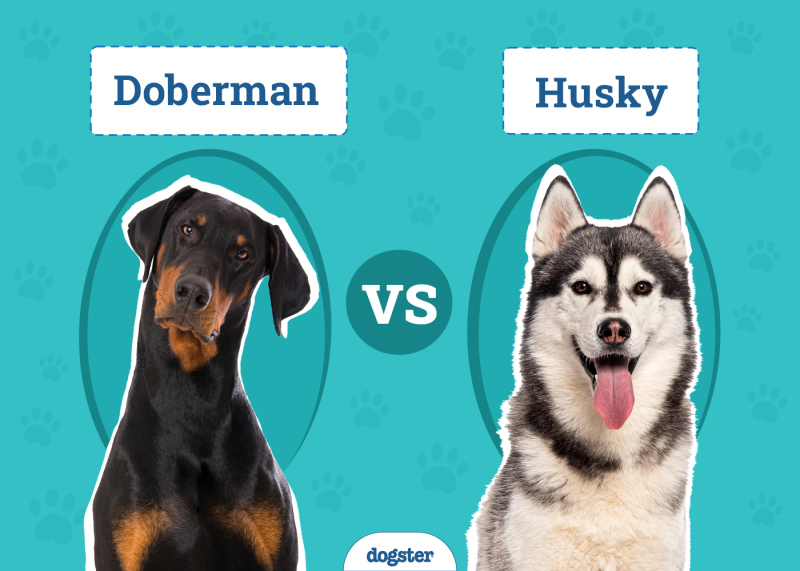In this article
View 8 More +The Schipperke is a little-known but extremely historic dog breed with personalities that are hard to forget. They’re small and spunky, funny and loyal, and once you get to hang out with one, you’ll fall head over heels in love with them.
Not only do they have some of the best personalities, but they’re one of the cutest dog breeds around!
Breed Overview
Height:
10–13 inches
Weight:
10–16 pounds
Lifespan:
12–16 years
Colors:
Black, apricot, black & tan, blue, chocolate, cream, fawn, gray, red, white
Suitable for:
Experienced pet owners, those looking for an active dog, and those looking for a lap dog
Temperament:
Loyal, intelligent, easy to train, vigilant, and protective
These dogs date back hundreds of years and have served as ratters, herders, watchdogs, sailors, and so much more. They might be small in stature, but they have huge personalities and are as versatile as they come.
No matter what you’re looking for, with some proper training, they can fit the bill, and once they bond with you, you won’t find a more loyal pet. But with so many great traits, why aren’t these dogs more popular? It’s all got to do with that big personality.
Schipperke Characteristics
Schipperke Puppies

While the Schipperke has quite an extensive history, they’re far from the most popular dog breed in the United States. Because of this, if you’re looking to get a Schipperke, you’ll likely need to travel a bit to find a reputable breeder, unless you’re incredibly lucky and happen to have one near you.
It’s also unlikely that you’ll find a Schipperke in a shelter, even if they’re not purebred. These are highly sought-after dogs, so if you want one, you’ll need to find a breeder.
Do your research and find a reputable breeder, though. You don’t want to support a puppy mill, even if you want a rarer dog. Not only do puppy mills harm the parent dogs, but they’re also more likely to produce pups with health problems.
Schipperke Origin & History
Whether you’re looking at ancient origins or modern recognition, the Schipperke has quite an extensive history. The breed originally comes from Belgium where they served as ratters for hundreds of years.
Meanwhile, the first Schipperke came to the United States in 1888, and the American Kennel Club (AKC) officially recognized the breed in 1904. And since the Schipperke first appeared in a dog show in Brussels in 1690, the formal recognition from the AKC was overdue!

Temperament & Intelligence of the Schipperke 🧠
With generations of breeding to keep these dogs as watchdogs and ratters, the Schipperke is a watchful dog that tends to know where everyone is at all times. They’re especially wary around strangers, and without proper training and socialization, this wariness can lead to nipping and biting.
Overall, they’re incredibly adaptive dogs and can thrive in a wide array of environments, whether it’s a traditional house pet, a working dog, or something in between. They’re not always the best choice for first-time pet owners, but they’re extremely loving and will happily spend as much time with you as they can get.
Are These Dogs Good for Families? 🏡
Generally, the Schipperke is a great family dog as long as you provide them with the necessary socialization. However, because of their smaller size, you should be especially careful with them around smaller children.
It doesn’t take much for a toddler learning to walk to stumble into a Schipperke and significantly injure themselves. Teach your pup and your kids to watch each other’s space and act appropriately around each other and you won’t likely have any problems.

Does This Breed Get Along With Other Pets? 🐶 😽
While a Schipperke can get along with other dogs if you socialize them early on, this isn’t always the case with other types of pets. These dogs were originally ratters, and as such, they have a deeply ingrained tendency to go after smaller animals.
Socialization can often help with this, but it isn’t foolproof, so you’ll want to get to know your pet and schedule some meet and greets before bringing any new animals into your home.

Things to Know When Owning a Schipperke
The Schipperke is an extremely adaptable dog, but they can also be a bit temperamental. This makes knowing what you’re getting yourself into all the more important, which is why we took the time to highlight some basic care requirements for you just below.
Food & Diet Requirements 🦴
Because of their smaller size, you don’t need to feed a Schipperke all that much. It’s still important to feed them high-quality food, though, whether it’s kibble, wet food, or fresh food. For kibble, you can feed them between ¾ and 1 ¼ cups of food daily, depending on your pup’s size and the brand of food you go with.
Furthermore, keep in mind that because they’re so small that it doesn’t take many treats for it to be too many. Be careful with how much you’re feeding them, and be careful about how many treats you’re offering.
Exercise 🐕
While the Schipperke is an active little dog, because of their smaller size, it’s usually easier to meet their daily exercise requirements. We recommend at least one walk a day, which should last at least 15 to 20 minutes.
From there, they’ll appreciate some time at the dog park or in a fenced-in yard, but often, you can play with them inside and still meet their daily exercise needs.
Training 🦮
While these dogs are generally eager to please, you still need to take the time to train them if you want them to listen to commands and be well-behaved. Consistency is critical when training them, and you need at least one training session daily.
Each session should only last between 10 and 15 minutes. Stick solely with positive reinforcement to encourage positive behavior, and to really lock in their attention, bring a few of their favorite treats.
Grooming ✂️
The Schipperke generally needs minimal grooming. You should brush them once a week throughout most of the year, but if they’re in a high-shedding season, you will need to brush them more frequently.
Brush their teeth once daily to keep up with their oral hygiene, and check on their nails about once a week to ensure you don’t need to trim them.
Health and Conditions ❤️
Like many purebred breeds, the Schipperke can suffer from numerous genetic health problems, even if they’re considered one of the healthier breeds. Take your dog to the vet for frequent checkups, and consider signing them up for a pet insurance plan to help cover any future vet bills.
Finally, getting your pup from a reputable breeder who offers a health guarantee and references can help mitigate the risk of your Schipperke developing any of the following conditions.
- Dental problems
- Progressive retinal atrophy
- Patellar luxation
- Legg-Calve-Perthes disease
- Hypothyroidism
- Obesity
Male vs. Female
For the most part, male and female Schipperkes are extremely similar. While you might notice some personality differences, this almost always has to do with the dog’s individual personality instead of their gender.
In fact, the only real notable difference between a male and female is their size. Males tend to stand 1 to 2 inches taller and weigh a few more pounds. It’s not something you’re likely to notice all that much, but considering their smaller size, it is a notable difference.

3 Little-Known Facts About the Schipperke
1. They Once Herded Livestock
Today, these dogs act much bigger than they are, and when you look at some of their previous jobs, it’s not hard to see why. People in Belgium once used these tiny pups to herd livestock, and it took a dog with a ton of confidence and a big personality to get the job done
2. They Get Their Name From the Flemish Word for “Boat”
These pups once spent a ton of time on ships as watchdogs, and it’s why their name starts with “Schip,” which is the Flemish word for “boat.” They earned the nickname “little captain” and “little skipper,” which is well-earned!
3. They’re Noisy Dogs
While their small size might make you think they’re great for apartment living, the problem is they like to bark and make noise. It all comes from their watchdog lineage, so consider this before bringing one home.

Final Thoughts
While they might seem like the perfect companion, we highly recommend taking your time before deciding to bring one of these dogs home. They’re great companions, but they also have big personalities, so ensure you’re completely ready to handle everything they have to throw at you.
If so, you’re going to find these pups challenging, rewarding, funny, loving, and so much more. They’re going to turn into your best friend, but they will test you every step of the way!
Featured Image Credit: Welshea, Shutterstock





















2 Responses
we live on a sailboat in south florida to texas with our slipnot he’s 7 and a service dog he’s always helping other’s but we fight all the time. he’s head strong and no fear of jumping off boat or a small
Thanks Adam- We’ve had Schipperke’s fur many years in Northern Ontario -( not a well known breed here) and Wow -You were right on in -Explaining/Describing/ and Advising about Dog Breeds – I will certainly tell all my friends if they are looking for advice before getting a Humans Best Friend !! Fur Sure